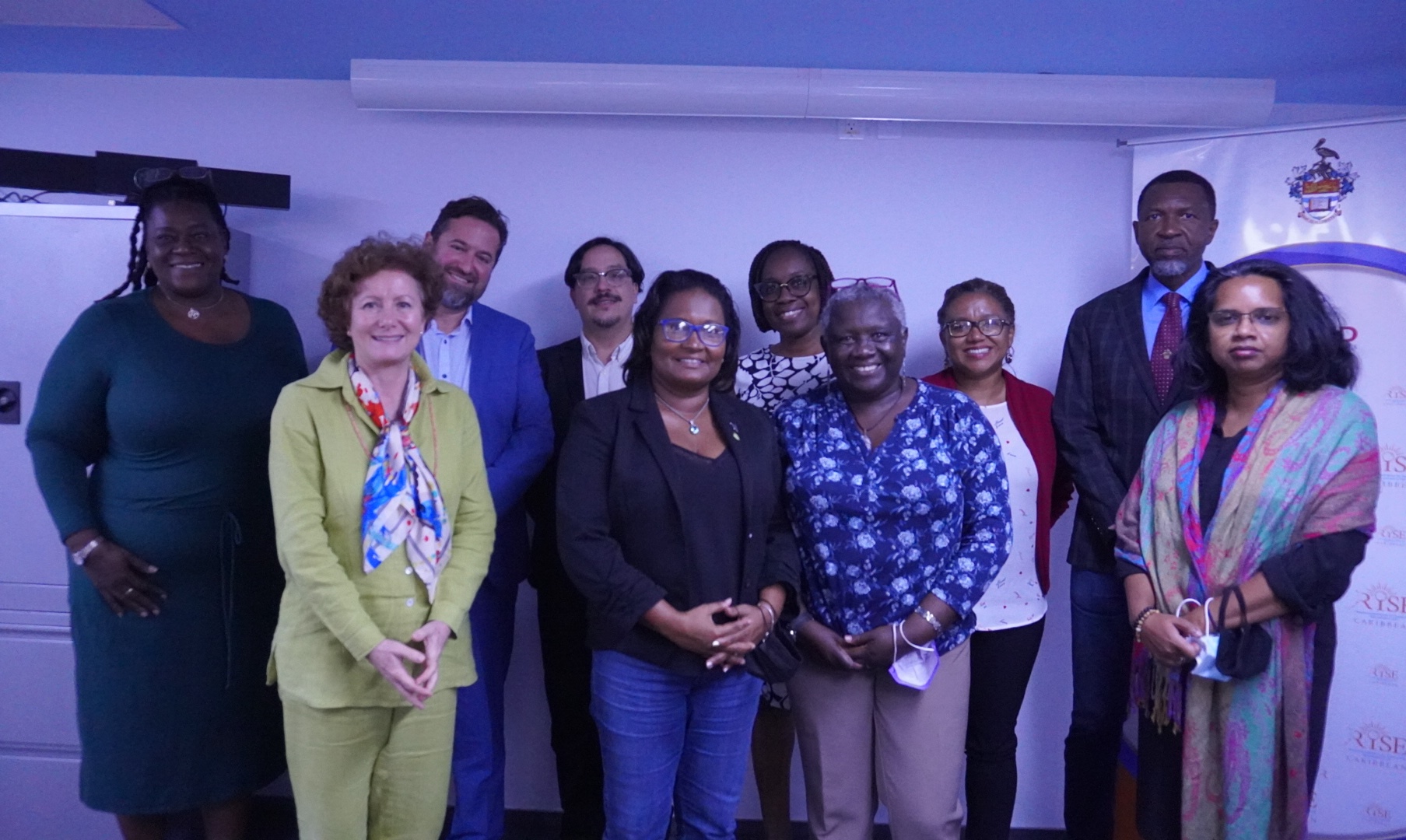
The second meeting of the KIX Hub Advisory Council for Latin America and the Caribbean (LAC), made up of directors and representatives of international organizations working for the development of education in the region, was held for the first time in person at the University of the West Indies in Bridgetown, with online participation.
During the opening, Florencio Ceballos, senior program specialist, International Development Research Centre (IDRC), stated, “The success of KIX in Latin America has been its central role in generating synergies, collaboration, and knowledge production jointly between organizations and, in turn, between countries, exploring the community and the feasibility of new projects.”
Ian McPherson, leader of the Global Partnership for Education (GPE), welcomed and thanked the Advisory Council and the SUMMA and Organization of Eastern Caribbean States (OECS) teams for their commitment to KIX LAC, highlighting that “the evaluation of these first years of implementation showed very positive results in terms of added value for their representatives and the 10 countries that make up the hub. We understand that education systems are complex and even more so with the particularity of each region, and making a significant change requires clarity in objectives and purposes, a problem-solving analysis and the use of research to develop evidence-based solutions.”
Javier Gonzalez, director of SUMMA, thanked colleagues from the participating organizations, highlighting that “what we do is changing reality, but we have to keep working to achieve our ultimate goal, which is to generate real impact. Our work has focused, during these three years of the KIX LAC hub, on teacher professional development, COVID-19, and public education, and now we are going to focus on the different areas related to strengthening public education in LAC.” Didacus Jules, Director of OECS, reinforced the idea that we must continue to carry out diagnostics and evaluations, and above all, work to accelerate the transformation of improvement processes for both teachers and students.
Joel Warrican, Dean of the Faculty of Education at the University of the West Indies, Cave Hill Campus, remarked on the trust and synergy achieved with SUMMA to make the teacher training program more inclusive and strengthen it, benefiting not only the teachers but also students in the Caribbean region. Michael Fullan, director of Global Leadership New Pedagogies for Deep Learning, referred to transparency without judgement, as this allows us to address the specifics of what is happening in educational systems because “it is necessary to have transparent data that provide specificity and precision about educational systems but do not impose prescribed solutions.”
The results of the KIX mid-term evaluation were presented, highlighting the relevance of the activities and the beneficial interactions with experts, especially in the construction of tools and capacities during and post-pandemic. The meeting also focused on the deepening of the topics of teacher professional development, early childhood education, and the construction of communities around these topics, opening participation to other actors in the education sector.
Josette Altmann Borbón, Secretary General for Latin America and the Caribbean at La Facultad Latinoamericana de Ciencias Sociales (FLACSO), concluded that political polarization in countries and societies was evidenced by the pandemic and should continue to be a reason to promote education. She stated, “We need more hours in schools to ensure quality learning and evaluate what are the real possibilities of children to access it, thinking about how we can connect education with the real market and end the inequity between private schools compared to most public schools.”
Sylvia Schmelkes, researcher at the Research Institute for the Development of Education at the Universidad Iberoamericana Ciudad de México, reinforced the position of maintaining regular evaluations and balancing them with formative evaluations because “the former inform us about learning gaps and we must ask ourselves what to do with that information – we should not judge schools, students, or teachers. What we must judge is the system. The system is failing because it reproduces gaps, and the evaluation allows us to see that.”
Both IDRC and GPE representatives congratulated SUMMA and OECS for the work done with the KIX LAC program during the two years of implementation.
